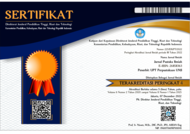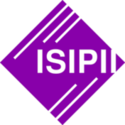Abstract
This paper aims to find out how library material selection activities in the development of collections in the university library are high. The library as an information provider unit always develops collections to meet the information needs of its users. As the development of science and information technology has an impact on the development of library collections with more complex information content which is a consideration in the development of library collections, the more challenging challenges of library selection as an effort to build a library collection that is strong and right on target for the user community. The method used in this study is descriptive in the form of literature review by taking secondary data obtained from several literature or literature studies (Research libraries) that are relevant in accordance with the problems discussed by reviewing and analyzing then described descriptively. The results of the discussion of this article are to show that library material selection is included as one of the important factors needed in the development of authority in library material selection at the college library. The provisions regarding the selection are regulated according to the type and structure of the library organization in question and are guided by the collection development policies and work procedures that have been set. With the selection of activities this helps the selector in choosing materials that will be used as library collections and becomes one of the activities that greatly determines the quantity and quality in developing collections in the library. Through this selection, it is expected that the collection of quality and relevant collections can be achieved according to the needs of the users. So if library material selection does not refer to the collection policy guidelines and work procedures that have been set, the quality in the development of collections in the library is not in accordance with user needs. collection. The activities carried out are processes, principles, tools, criteria, and parties
Keywords
collection; collection selection; collection development; university library
References
Sulistyo Basuki, 1991. Pengantar Ilmu Perpustakaan. Jakarta: Gramedia Pustaka Utama Departemen Pendidikan dan Kebudayaan.2004. Buku Pedoman Perpustakaan Perguruan Tinggi. Jakarta: Departemen Pendidikan dan Kebudayaan. Qalyubi, Syihabuddin. 2007. Dasar-Dasar Ilmu Perpustakaan dan Informasi. Yogyakarta : UIN Sunan Kalijaga. G. Edward Evans and Margaret Zarnosky Saponaro, 2005 “Developing Library and Information Center Collections”, London: Library Unlimited Sulistiyo Basuki,1993, “Pengantar Ilmu Perpustakaan”, Jakarta: Gramedia Pusataka Utama Sulistyo Basuki, 1991 “Pengantar Ilmu Perpustakaan”, Jakarta: Gramedia Pustaka Utama Yuyu yulia dan Janti Gristinawati sujana, 2009 “Pengembangan Koleksi”, Jakarta,Universitas Terbuka Massofa, 2009“Pengadaan Bahan Pustaka”, dalam (http://massofa.wordpress.com,2009) diakses pada tgl 23 November 2018 Yunus Winoto dan Sukaesih, 2016, “Studi tentang kegiatan pengembangan koleksi (collection development) pada perpustakaan perguruan tinggi di Wilayah Priangan Timur Provinsi Jawa Barat”, Khizanah Al-Hikmah Jurnal Ilmu Perpustakaan, Informasi, dan Kearsipan Yusuf, Pawit M dan Suhendar Yahya.N, 2007 “Pedoman Penyelenggaraan Perpustakaan Sekolah”. Jakarta: kencana. Sutarno NS.2006, “Perpustakaan dan Masyarakat”, Jakarta:Sagung Seto Siregar. 1998,“Pembinaan Koleksi Perpustakaan dan Pengetahuan Literatur.Medan: Bahan Penelitian Tenaga Teknis dan Proyek Pembinaan Perpustakaan di Sumatera Utara” Suharti, 2018“Seleksi Bahan Pustaka di Direktorat perpustakaan” dalam Buletin Perpustakaan Universitas Islam Indonesia




.png)
.png)









1.jpg)
